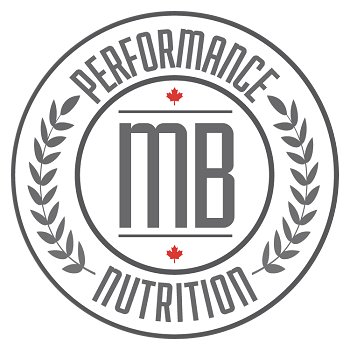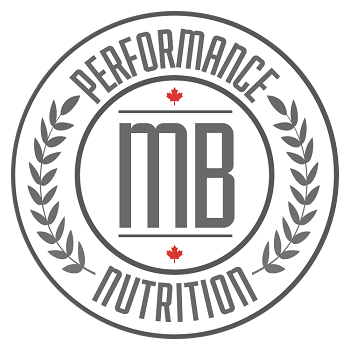Last updated on July 26th, 2018
If you’re an OCR athlete, Ryan Atkins is a household name. Most recently he picked up his fourth straight win at World’s Toughest Mudder, completing 105 miles with partner Jon Albon and also finished first in the Spartan U.S. Championship Series. He finished in second place at the Spartan World Championships and at OCR World Championships he won the 3k short course and finished second in the 15k classic.
I have seen numerous interviews with Ryan about his workouts and a few articles have briefly touched on his eating habits a day or two before a race. But I wanted to know more than that, so that I could share with you the importance of a daily performance diet for optimal training and health and a training diet fine-tuned for top performance.
Ryan took the time to answer some in-depth questions about his diet and I am thrilled to share the interview below:
Melissa: Have you worked with a nutritionist for athletic performance?
Ryan: No
How much water do you drink on a daily basis?
It depends on my activity levels and training for that day, but typically about 2 liters as a baseline.
What do you eat on a typical (non-competition or long training day) day?
-Every morning I eat 4 eggs. Usually fried. I have them on some whole wheat, grainy bread (2 pieces). I’m usually quite ravenous when I wake up and this is tasty, nutritious and a great way to start the day. I have a cup of black coffee as well.
-Pre-training I’ll have an orange or a banana. If I’m training for less than 2 hours, I don’t bring any nutrition with me. If it’s warm out, i’ll bring some water.
-For lunch I’ll have a smoothie. This is usually post-training. I typically put: frozen fruit, coconut milk, ½ banana, 1 tbsp peanut butter and cinnamon. If I’m doing another hard training session that day, I’ll have ½ scoop of whey protein. I only use the pure, natural stuff.
-After lunch if I’m still hungry, I’ll have some veggies and hummus, or a piece of toast with almond butter. I might grab a few almonds or walnuts too.
-Dinner is pretty variable. Usually a small portion of meat, a salad and some carb. My wife, Lindsay, makes a delicious cornbread. I wish I could tell you more about my dinner, but like I said, it changes around every day!
-Dessert will sometimes be dark chocolate, or some hot chocolate, or popcorn. I’ll usually have tea as well in the evenings.
***Note: My boyfriend, Colin and I had a chuckle when I read Ryan’s dessert choices as those are literally the same three options we rotate between.***
What vitamins or minerals do you take?
I try to take omega 3 fish oil every other day, but I’ll often buy the eggs that already have it in them. Otherwise I’m not taking any vitamins or minerals right now.
What sports supplement do you take and when (pre-workout, intra-workout, post-workout)?
I’ll take BeetElite before my intense workouts or races. I played around with some pre-workout stuff last year. Intra-workout I will take Skratch Labs Daily Electrolyte Mix if it’s really long and hard (3+ hours). Otherwise just water. If it’s a long slow day, I might pack a peanut butter and jelly sandwich.
Do you change your nutrition strategies to reflect the phase of training you’re in? (Prep phase vs. Build phase vs. Taper phase vs. Transition phase)
-Prep phase is usually still off-season. I eat whatever I want, which usually means a bit more chocolate. Yum.
-This is something I’ve played around with in the past. Usually in the base phase I’m doing more strength work, so I have to reduce my protein intake, to counteract gaining too much muscle (I gain muscle VERY easily).
-Build phase I’m usually craving some sort of easy sugar pre-workout, if I’m running a calorie debt. This comes in the form of orange juice or banana.
-In the Taper phase I shift away from most breads and try to eat more salad, in the 7-3 days preceding a race. This makes me a bit leaner and lighter. I feel stronger at this point too. In the 1-2 days before a race I keep this trend, but try to include some reasonable servings of sweet potatoes for dinner. I think excessive carb loading is a bit of a fad.
What is your fluid strategy before, during and after exercise?
-Fluid intake is pretty typical. I try to drink steadily throughout the day. I’ll have a cup of extra water before training and again afterwards. If I’m training for more than 2 hours, I’ll bring about 250ml per hour in cold weather and 500ml per hour in hot weather.
-I did a 10 hour run late summer and it was way hotter than anticipated. Despite taking on 500ml per hour, I got severely dehydrated, and had to slow way down. I was getting heat stroke and had to hop into several lakes to cool my body. Water intake can be so variable!
If you know, what is your current body fat percentage? Do you have a goal body fat percentage for race day?
Typically in non-racing season, my body fat percentage is around 10%. As I get into race season, it drops to 7-8%. Much lower and I’ll experience burn-out.
***Nutrition Note: Less than 6% body fat for men, and less than 16% body fat for women is considered unhealthy and can lead to the loss of sex drive, low testosterone in men, period loss in women, disordered eating, social isolation and an unbalanced life.***
How many hours of sleep do you get every night? What time do you go to bed and wake up?
I try to get about 9 hours of sleep per night. In bed at 10:30 pm, sleeping by 11:00 pm. Wake up at 8:00 am.
Read about the benefits of high quality sleep here.
How do you recover your body and mind from the demands of your life and your training?
I find that by spending time with friends or doing something totally unrelated takes my mind off training. I also find that by starting new hobbies or learning new skills I motivate myself easily to stay positive and focused throughout the year.
Do you suffer from chronic illnesses, infections, pain, inflammation or injuries? (I ask this because I see many athletes who are constantly sick, even in the middle of the summer)
No
How often do you eat fast food?
Whenever I’m travelling, I’ll eat out, but I tend to go for healthier options. I never eat fast food burgers or fried chicken.
What processed foods do you eat?
I don’t think I eat very many, if any. Maybe some canned soups or chips about once a month. I’ll also have pizza 1-2 times per month, but usually thin crust, with lots of veggies.
Are there any foods you dislike but eat anyway because they’re healthy?
Kale can be kind of nasty, if it’s not prepared properly.
Are there any foods you avoid whenever possible (such as gluten, sugar, meat etc.)? Why?
I can’t eat yogurt or rich cheese (brie!), but I seem to tolerate milk okay. So I just try to limit my dairy to smaller amounts. I try to avoid white, refined sugar, except when I’m training on long days. I don’t eat white breads either.
What is your fluid and nutrition strategy on race day for various distance races?
– <1 hour: every 30 minutes I’ll take a gel. I don’t carry water, but I will take sips from aid stations.
– 1 hour – 2 hours: every 30 minutes I’ll take a gel. I might start with a small flask of electrolyte drink as well, if it’s hot out. I’ll drink this at about 1 hour in, or whenever there is a long distance between aid stations.
-2-4 hours: I carry a 500ml water flask with electrolytes, and re-fill at aid stations as needed. I’ll bring shot-blocks, gels and some white rice with me.
-4-24 hours: eat about 250 calories per hour, and get in some sort of electrolytes. Otherwise my stomach will dictate what I can handle. If I’m unsupported, I’ll bring chocolate bars, gels, gummies, bananas and a sandwich. If it’s supported, I’ll have loads of options for when I come through the pit.
As a Certified Holistic Nutritionist who coaches OCR athletes to optimize their performance and improve their race times by making sure they are nourished on a cellular level, I am pleased with Ryan’s answers.
As an endurance athlete, you need to take your nutrition as seriously as your training in order to improve the quality of your training, your recovery and performance in races. Being fit does not equate being healthy and many OCR athletes are putting their health at risk with their current nutrition and lifestyle habits.
Thank you to Ryan for sharing his nutrition and lifestyle habits. You can follow him on Facebook and Instagram.



